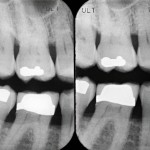
The aim of this review was to determine the extent to which educational attainment influences risk of periodontitis in adults aged 35+ years in the general population.
The authors searched the Embase and Medline databases, reference lists of identified articles, personal databases and contacted experts in the field. general population-based studies conducted in adults aged 35 years and more were included. All articles were blind reviewed by two investigators with a third arbitrating in cases of disagreement. PRISMA guidelines were followed.
They found:-
- Relative to the higher education group, people with low education attainment experience a greater risk of periodontitis (OR: 1.86 [1.66–2.10]; p,0.00001).
- The association was partially attenuated after adjustment for covariates (OR: 1.55 [1.30–1.86]; p,0.00001).
- Sensitivity analyses showed that methods used to assess periodontitis, definition of cases, study country and categorization of education are largely responsible for the heterogeneity between studies.
- No significant publication bias.
They concluded that:-
In the studies reviewed, low educational attainment was associated with an increased risk of periodontitis. Although this evidence should be cautiously interpreted due to methodological problems in selected studies, efforts to eliminate educational inequalities in periodontitis should focus on early life interventions.
Boillot A, El Halabi B, Batty GD, Rangé H, Czernichow S, Bouchard P. Education as a predictor of chronic periodontitis: a systematic review with meta-analysis population-based studies. PLoS One. 2011;6(7):e21508. Epub 2011 Jul 21. PubMed PMID: 21814546.
